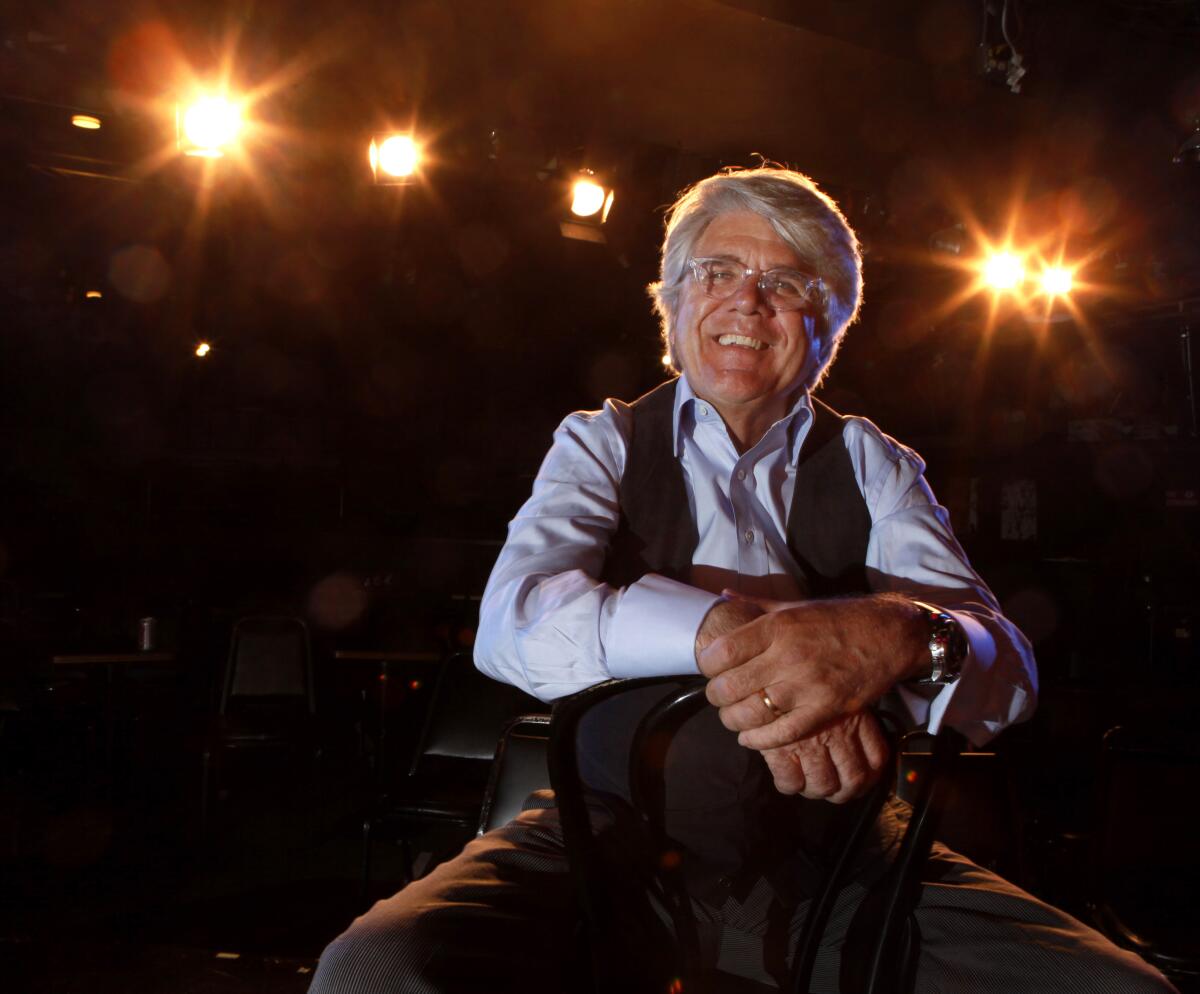Second City CEO steps down amid claims of racism at theater

Andrew Alexander, the CEO and co-owner of the Second City improv theater, said he is stepping down after a former performer leveled accusations of racism against the comedy institution.
In a lengthy letter posted on the company’s website, Alexander said he “failed to create an anti-racist environment wherein artists of color might thrive. I am so deeply and inexpressibly sorry.”
He vowed Friday that he will be replaced by a person of color.
Filming in California can resume as soon as next Friday, but county public health officials must approve productions in their jurisdictions.
The originally Chicago- and Toronto-based Second City was an early training ground for “Saturday Night Live” players including John Belushi, Dan Aykroyd, Gilda Radner and Chris Redd, among other comedy stars such as Keegan-Michael Key, and the company produced “SCTV” TV series in the 1970s and ’80s.
Alexander’s announcement Friday followed online criticism from Second City alumnus Dewayne Perkins, an actor, comedian and writer (“Brooklyn Nine-Nine”). Perkins said the company had refused to hold a benefit show for Black Lives Matter unless half of the proceeds also went to the Chicago Police Department, and it also created obstacles for performers of color.
His tweets were in reply to a Second City tweet posted last week in support of Black Lives Matter amid protests around the country over the death of George Floyd, a black man who died at the hands of police in Minneapolis.
In a tweet noting Alexander’s resignation, Perkins had a one-word comment: “Oop.”
Series creators, including Chuck Lorre and Dan Levy, exchange ideas on what new TV productions might look like. Think cellophane for starters.
The London-born Alexander said he is “fully removing myself from overseeing the Second City’s operations and policies and will divest myself from the company as it stands.”
A Second City statement Friday laid out steps the company planned to take regarding the hiring and training of artists of color, along with diversifying its theater audiences and making donations to fight oppression and support black-owned businesses and schools.
More to Read
The biggest entertainment stories
Get our big stories about Hollywood, film, television, music, arts, culture and more right in your inbox as soon as they publish.
You may occasionally receive promotional content from the Los Angeles Times.












